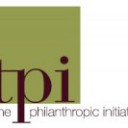I have a confession. I’m a prosetelyzer and I’m an evangelist… for strategic family philanthropy. I caught the bug when my own family discovered the joys of working together on our family foundation, and it’s become a calling in life. I’ve spent the last 20 years of my professional life evangelizing: working with families who are about to embark on a journey into family philanthropy – or are already deep into it, and helping them become more fulfilled in that journey, craft and realize big ambitions and become strategic, effective givers. Dream big and give wisely – that’s TPI’s tagline.
The problem is that it’s not easy. More than a few people have told me it’s a lost cause, that I’m Sisyphus pushing that big old rock up the hill. But unlike Sisyphus, this is my goal, not a punishment, and the rewards of seeing some of those rocks reach the top of the hill have made it worth it.
In this series of posts, I’m going to talk about why I think strategic family philanthropy is important and why it can be so hard to achieve. I’ll share some examples of success and failure, and provide you with a little advice for what you can do to make it a reality – and not an oxymoron.
Let’s start with the family part. Why do philanthropy with your family at all? I mean it’s hard enough running a house together with my husband, or planning holidays with my sisters; why would you or I take on the work of forming a family philanthropy enterprise? It would be a lot easier to just write checks to the organizations each of us care about… alone.
So here’s what I’ve seen and experienced that has convinced me that it’s worth the hard work. Family philanthropy:
Strengthens family bonds
I’ve seen families develop a more powerful sense of family connectedness and cohesion through working together in philanthropy. I’m not saying it will fix a damaged family – it won’t – but it can surely strengthen bonds for many families and compensate for the distancing that comes when the family lifecycle sends kids off on their own across the globe. It can provide a highly meaningful focus point, something additive to the bonds of grandchildren and holidays. It can be something that the family works on together, a noble and higher purpose.
Creates a family legacy
Family philanthropy also offers to help shape a family legacy. It helps a family answer and define, ‘What does our family stand for? What did my parents and my grandparents stand for? What are the values and purpose that we hope will transcend generations and instill a sense of pride and tradition?’ It may be, simply, that we gave back to society. It may be that we built this wing of the hospital. The notion is that there is a shared understanding, a sense of pride in the family and we all know that this contributes to healthy human development.
Connects and educates a family about the larger world
Family philanthropy can also deliver – for its participants – a powerful sense of connectedness to the broader society. It does this in part by giving more meaning to wealth and making sense of wealth disparity. Philanthropy broadens horizons; it takes us out of our cocoons and narrow geographic orbits and connects us to the crazy, messy world out there. Paul Schervish, one of the premier researchers and philosophers on philanthropy calls this ‘enlarging one’s community of care’. Your community of care usually begins at home, expands to your extended family, to your friends, perhaps to your neighbourhood; but philanthropy can enlarge it to all neighbourhoods – it can expand your empathy. And when you experience this phenomenon in the company of your family, it is, well, wonderful.
Makes a difference in your community and the world
Lastly, in my ‘case’ for family philanthropy, I’d like to talk about the benefits for society. Imagine if every family, rich or poor, wanted to do something together for their communities – monetarily or with their time and service. If that’s how we raised all our families (and I realize that many people do) wouldn’t the world be a far better place? Wouldn’t we have healthier children and stronger families everywhere and cumulatively an amazing society?
By now you’ve got to be asking the obvious question: Should all families link arms to do philanthropy together? The short answer is no. I’m not so Pollyannaish to think that all families actually like working together or that doing so will be a positive experience. In fact, I know that it can do harm when done poorly and in the wrong culture, time, or context.
When I first got into this business, I thought that every family could figure out a way to collaborate on philanthropy and do so strategically. But I’ve gotten a little wiser over the years, certainly enough to know that it’s not the right solution for everyone. For the ones for which it is right, I’ll use my next post (next week) to talk more about the second ingredient in the equation, which is ‘strategic philanthropy’. Or maybe we should call it ‘smart philanthropy’
Ellen Remmer is managing partner of The Philanthropic Initiative








Comments (1)